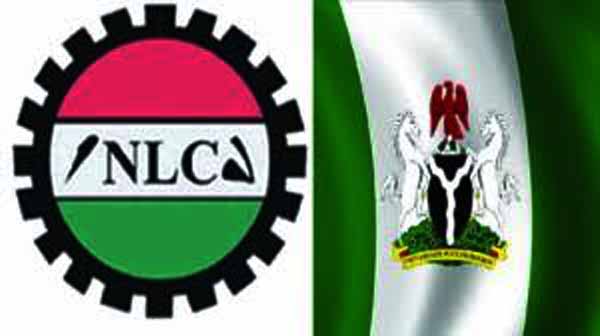
….20% Nigerians lost jobs-NBS
By allcitynews.ng
The year 2021 might have come and gone forever, but the positive and negative events that shook the labour industry may take a long time to be rectified.

The transferred problems from year 2020 that brought dramatic turnaround systems of doing things, coronal-virus pandemic, still embarked on its evil agenda. In fact, staying alive by all of us today has continued to be the grace and mercy of God.
The pandemic altered many things ranging from ways of doing things to strict observance to public gatherings and other strange ways, in fact, it is no longer business as usual for many people and countries. Why? International flights are being altered with some countries locking their main gates to other countries over suspicion of being carriers of the pandemic.
Thus when the Director General, Guy Ryder, International Labour Organisation [ILO] sounded note of warning against the effects, he stated that “the loss of working hours in 2021 because of the pandemic will be significantly higher than previously estimated, as a two-speed recovery between developed and developing nations threatens the global economy as a whole.
According to Ryder, ILO then projected that global hours worked in 2021 will be 4.3 per cent below pre-pandemic levels (the fourth quarter of 2019), the equivalent of 125 million full-time jobs. This represented a dramatic revision of the ILO’s June projection of 3.5 per cent or 100 million full-time jobs.
ILO warned in its eighth edition of the ILO Monitor: COVID-19 and the world of work , warned that without concrete financial and technical support, a “great divergence” in employment recovery trends between developed and developing countries will persist.
“In the third quarter of 2021, total hours worked in high-income countries were 3.6 per cent lower than the fourth quarter of 2019. By contrast, the gap in low-income countries stood at 5.7 per cent and in lower-middle income countries, at 7.3 per cent.”
While National Bureau of Statistics [NBS] and the United Nations Development Programme surveyed revealed that nearly 3,000 businesses in the formal and informal sectors were shut down in Nigeria because of the pandemic.
In March, the NBS said a third of Nigeria’s workers were out of a job in the fourth quarter of 2020, a situation worsened by the pandemic.
As if that was not enough, organised lsbour had several unfinished cold war between employers of labour and employees.
That President Muhammadu Buhari signed N30, 000 as New National Minimum Wage into law in April 2019 was not accepted by some state governments. Hitherto, according to yet unconfirmed record, about 16 state governments have refused to pay the N30, 000. Even payment of the N18,000 which was operational prior to 2019 is still a great task for those governors.

As such, Wabba-NLC decided to take the bull by its horns by picketing those states who refused to honour the N30,000. Notably, Kaduna State who violently disallowed honour of the civil servants in that state got baptism of Wabba-led picketing.
Also, from January to December 2021, labour union leaders were faced with negative government policies ranging from hike in electricity to fuel price increment.
As a result, the leadership of Nigeria Labour Congress (NLC) once said that Nigerians won’t forget 2021 in a hurry as a result.
The organised labour who had used 2020 to strategise against perceived government anti-masses policies in 2021, did not waste time in implementing that plan.

Just as labour is already using 2021 to prepare for pending strikes in January 2022 over subsidy removal.
Labour technocrats saw the battle by labour to protect the interests of the voiceless Nigerian workers and all Nigerians against the anti-people policies as justifiable. If labour had kept quiet, the government of the day would have pushed many Nigerians into poverty level through their policies summersault.
The first struggle which could be placed into two areas were struggle against deregulation of the downstream sector and the second against increment in electricity tariffs.
Health sector had rough time as the organised labour in that sector, Nigerian Medical Association embarked on strike over non-implementation of agreements between government and labour.

Another one is that of organised labour in educational sector, Academic Staff of Universities (ASUU).
Like acting the script of the song writer, Late Bob Marley, “he that fights and run away…” ASUU and others are still set for carried over war with government in 2022.
NLC and TUC gave their support to that first struggle, the second struggle was led by the four trade unions in the universities which are the Academic Staff of Universities (ASUU), Non-Academic Staff Union of Educational and Associated Institutions (NASU), Senior Staff Association of Nigerian Universities (SSANU) and the National Association of Academic Technologists (NAAT).
While effects of other strikes might not have been felt so much but the one by NLC and TUC on statewide struggles were felt as such paralysed business activities within the concerned states.
Such was the struggle against petrol price increments. The NLC helmsman who has never hide his disappointment over refusal to revive the four refineries said he wondered why government should be talking of subsidy on imported petroleum products at the neglect of the repairs of the four national refineries.
Since importation is being directed by
unstable foreign exchange, FG should focus on restoration of the lost 100 per cent production of those refineries which would save the country from creating jobs and wealth to other countries at the expense of millions of unemployed Nigerians.
According to Wabba revival of the four refineries would act as a sustainable solution to incessant increases in the pump price of petro.

Just labour transferred unfinished business of fighting for welfare of Nigerian workers and indeed all Nigerians, from 2020 into 2021, it has given warning of battle cry to paralyse business activities nationwide if FG should go ahead with its planned increment of fuel price, come January 2022.









More Stories
Why NNPC released 35 CNG Buses to Federal Government
Why AMCON sold one of the largest electricity distribution companies, Ibadan Electricity Distribution Company
Access Bank installed 974 solar-powered ATMs, Highlights Leadership at Climate Governance Initiative Launch in LBS, Lagos, Nigeria